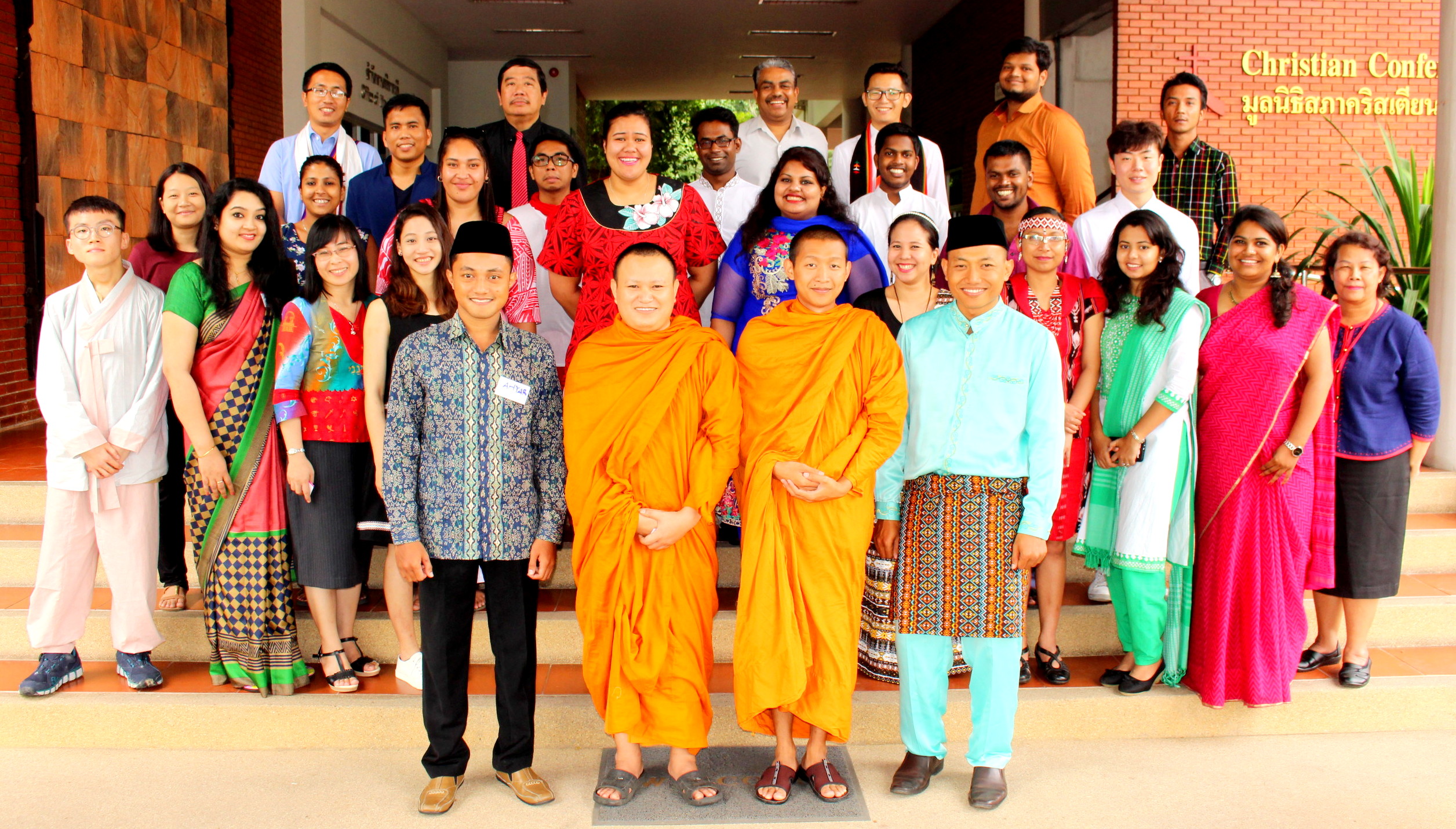Interfaith Training of Young Ambassadors of Peace in Asia (YAPA) begins
 Participants YAPA – 2017
Participants YAPA – 2017
The week-long interfaith training of Young Ambassadors of Peace in Asia (YAPA) began at the headquarters of the Christian Conference of Asia (CCA) in Chiang Mai on Monday, 29 May 2017. The YAPA training is being attended by 30 young people from various Asian countries.
The annual training for young peace activists in Asia is aimed at providing peace education in interfaith perspectives through a variety of learning methodologies and interactive sessions with inter-religious leaders and scholars at various Buddhist, Hindu, Muslim and Sikh religious shrines and monasteries in Chiang Mai city and its outskirts.
The training focuses on enabling the youth as agents of change in peace building and conflict transformation in local communities through intercultural and interfaith approaches.
In the opening thematic address, the General Secretary of the CCA, Dr. Mathews George Chunakara outlined the interconnectedness of the concepts of peace with justice in God’s Okios and the long nurtured values of Asian religions and spirituality.
“All religious traditions agree upon the central idea of peace on earth and the message of breaking the dividing walls of hostility. Religious values affirm that human beings are created in the image of God and the recognition of human rights and dignity is central to the principle of peace with justice. However, emerging contexts in Asia warrant efforts by more peace builders and YAPA is CCA’s humble effort to motivate more youths in Asia to be peace activists or peace promoters in local contexts,” the CCA General Secretary told the participants.
Facilitated by a variety of experts and resource persons, the YAPA – 2017 participants are undergoing a training that covers a range of activities, including thematic presentations, panel discussions, as well as grass roots exposure visits, self-guided study and preparation of research papers. The participants are also engaged in sharing insights about the situations in their respective communities.
In a session on Theological Perspectives of Peace with Justice in the Bible, CCA Program Coordinator, Rev. Dr. Ngurliana explained the importance of ‘Peace with Justice’ hermeneutically as the ongoing process of God’s restoring mission paradigm with the aim of bringing harmony by relationship-building between individuals, societies and nations.
“The Biblical-Theological concept of peace is more than the secular concept of peace and justice. In the Bible, peace does not depend on retributive justice, but restorative justice. Our ecumenical call is that our churches work as God’s partners in building peace in the world,” Dr. Ngurliana said.
Dr. Joseph Manickam, Director of the Institute of Religion Culture and Peace (IRCP), spoke on Interreligious Engagement for Peace and Justice. He challenged the tendency of Asian societies to recognise the humanity of everyone, regardless of their faith, and emphasised upon engagement as the motivator of mutual transformation.
“Being curious about each other is the key to peace building. Peace in itself is not a goal, it is a journey and it starts from going from intolerance (Sameness) to tolerance (Manyness) to engagement (Oneness). To be able to transform conflicts, we must all talk in a common language,” Dr. Manickam told the participants.
Dr. Rey Ty, Program Coordinator of the CCA said that, “the course outline of YAPA – 2017 has been designed to empower the participants to be committed to work for structural transformation that promotes communal harmony and peace based on justice in their communities.”
The young ambassadors will prepare action plans during the training and present their plans of action towards the end of the training in order to develop a strategy to implement them upon return to their respective communities and countries.
The training will end on 3 June 2017.











